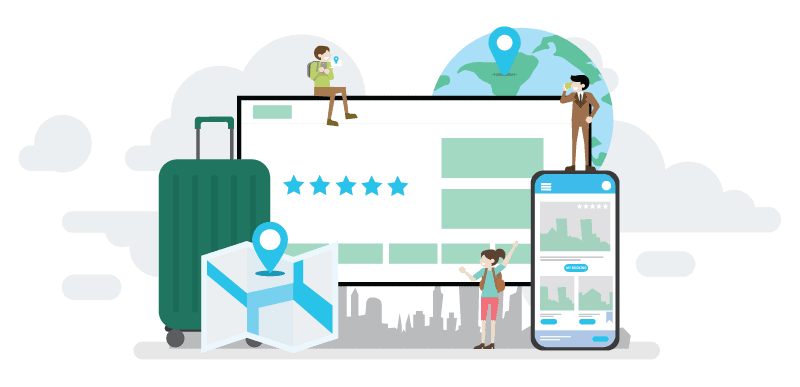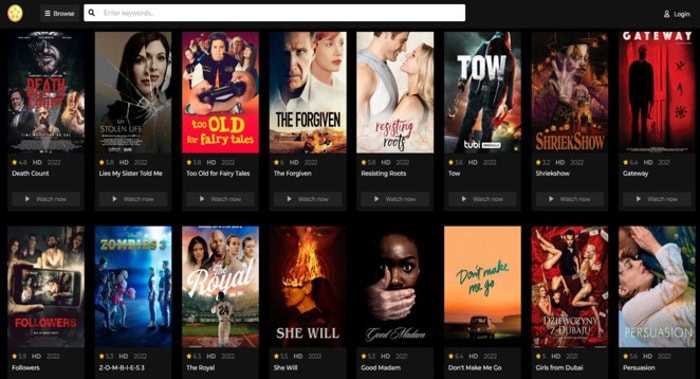
Like many other industries, the hospitality sector is experiencing a big change, thanks to advancing technology. Modern guests warm up to a more customer-centric experience, right from the time they choose their destination to the time they check out of a facility. Besides, today’s hotel guest wants more comfort, convenience, features, quick customer service, and much more.
In 2020, when the industry had plans for a great year, the COVID-19 pandemic struck. This altered nearly everything, as both domestic and international travel halted. The situation prompted more application of technology in various areas of the hospitality industry. As an example, many hotels resorted to using robots for cleaning and doing errands to and from guest rooms.
Technology in the Hospitality Industry
There is a growing comparison between rudimentary approaches and the possibilities offered by cutting-edge technologies. Digital technology is already transforming every sector and the hospitality industry is not left behind. Many hotel operators are already aware of the newest features that digital technology can offer to the industry.
With the COVID-19 pandemic in the equation, the need for digital technology is gaining more traction. The pandemic has brought the “New Normal” that has disrupted the social fabric as we knew it. Social distancing and no-contact protocols in hotels have given rise to the application of digital concepts.
From accommodation booking and food ordering to checkout and other payments, digital technology allows customers to do these in the comfort of their handsets. To give their customers a new experience, hospitality service providers need to keep up with the latest digital trends.
Here are the major digital trends, which are shaping the hospitality industry:
Internet of Things (IoT)
The Internet of Things (IoT) is one of the newest technological advances. It refers to fitting everyday devices with internet capabilities to allow them to send and receive information over the internet. In the hospitality industry, this technology is important because it allows hoteliers to cut down energy costs while optimizing their hotel rooms with no human interference.
In some hotels, the technology is used to automatically control the power of light bulbs, especially during daylight hours. Internet-enabled devices can also regulate or turn off the heating system in occupied and unoccupied rooms respectively. Hospitality service providers also use the technology to optimize temperatures automatically, just before guests arrive.
The technology complements the hospitality industry by giving customers seamless experience shifts between hospitality amenities. It creates smart rooms that enable guests to control hotel amenities and order services through a mobile app or voice assistant application.
Artificial Intelligence (AI)
Artificial Intelligence (AI) is one of the emerging digital trends that are shaping the hospitality industry. The use of robots, for example, was until recently associated with manufacturing lines. However, hospitality service providers today have tapped into using AI-driven robots to perform tasks previously done by humans.
In some hotels, robots perform nearly seventy percent of tasks. They can deliver general information to tourists, communicate at the front desk, and even work in the cloakroom. Importantly, AI solutions with machine learning algorithms are today used to analyze big data and give accurate estimates across various important metrics.
This technology goes a long way to help businesses improve their decision-making capabilities. The hospitality industry is rapidly using chatbots, which are part of the AI solution. These machines can help improve guests’ stay at every level. For instance, chatbots can analyze information from a wide variety of sources such as purchase history, stored payment options, food preferences, and many more.
This eventually gives guests a deeply personalized experience. The more data a chatbot’s algorithm can analyze, the better the delivered outcome and the suggestions. Importantly, chatbots have a faster response time. Guests can receive their answers almost instantly, the same way they would do with a knowledgeable person.
Augmented and Virtual Reality (AR/VR)
Today’s hotel guests want to see exactly what they are buying, especially if they are dealing with high-end hotels away from home. This is where augmented and virtual reality comes into play. These two technologies differ slightly while addressing the same concept.
AR and VR-enabled hotels can provide their guests with virtual tours of the rooms and other amenities. These tours are simple to navigate and accessible through various devices like smartphones, laptops, or desktops. Through VR, guests can have a preview of what their hotel looks like even before they book.
This facilitates informed decisions on the size of the rooms they need. It also provides virtual experiences of local attractions and acts as a form of entertainment within the hotels. AR takes the experience a notch higher by providing real-world surroundings, coupled with graphical or informational overlays, which customers can use to their advantage.
Mobile Front and Center
In this era of mobile technology, the hospitality industry continues to utilize the technology to give their clients a new hotel experience. Take, for instance, a branded hotel app. This technology offers two-way communication between guests and the facility.
Through hotel apps, guests can access hotel services and other important information at any point they want. For instance, they can order, their dinner while still at the spa. Similarly, the hotel can use the app to communicate with their guests in real-time, give notifications, alerts, updates, or offers. Overall, a hotel app can accomplish the following:
- Remote check-in and checkout
- Remote booking options
- Restaurant booking with in-app menus
- Staff chats
- Hotel map
- Guest room services (in-room dining, laundry, and other errands)
- Real-time information including flight schedules, hotel entertainment, and more
- Room key functionality
In addition to this, hotel apps initiate self-service, which helps improve customer experience. Providers can also use apps to create loyalty programs and generate more repeat customers. The technology also blends well with previously mentioned digital solutions that arise from the Internet of Things. This allows customers to control devices from their smartphones.
Final Thoughts
Whether it’s creating a smart room or AI-driven algorithms, digital innovation has stamped its power in the hospitality industry. However, it doesn’t stop there. There is still enough space for digital innovation. Experts should make use of emerging technologies such as blockchain to shape the future of the hospitality industry. Even in a post-Covid era, digital technology appears to be the new normal and future of the hospitality industry.
Author Bio
Alexander Mirza, The Founder & CEO of Mogul – Humanizing Travel. Its platform Staymogul.com provides booking, service, and talent solutions for the hospitality industry.


